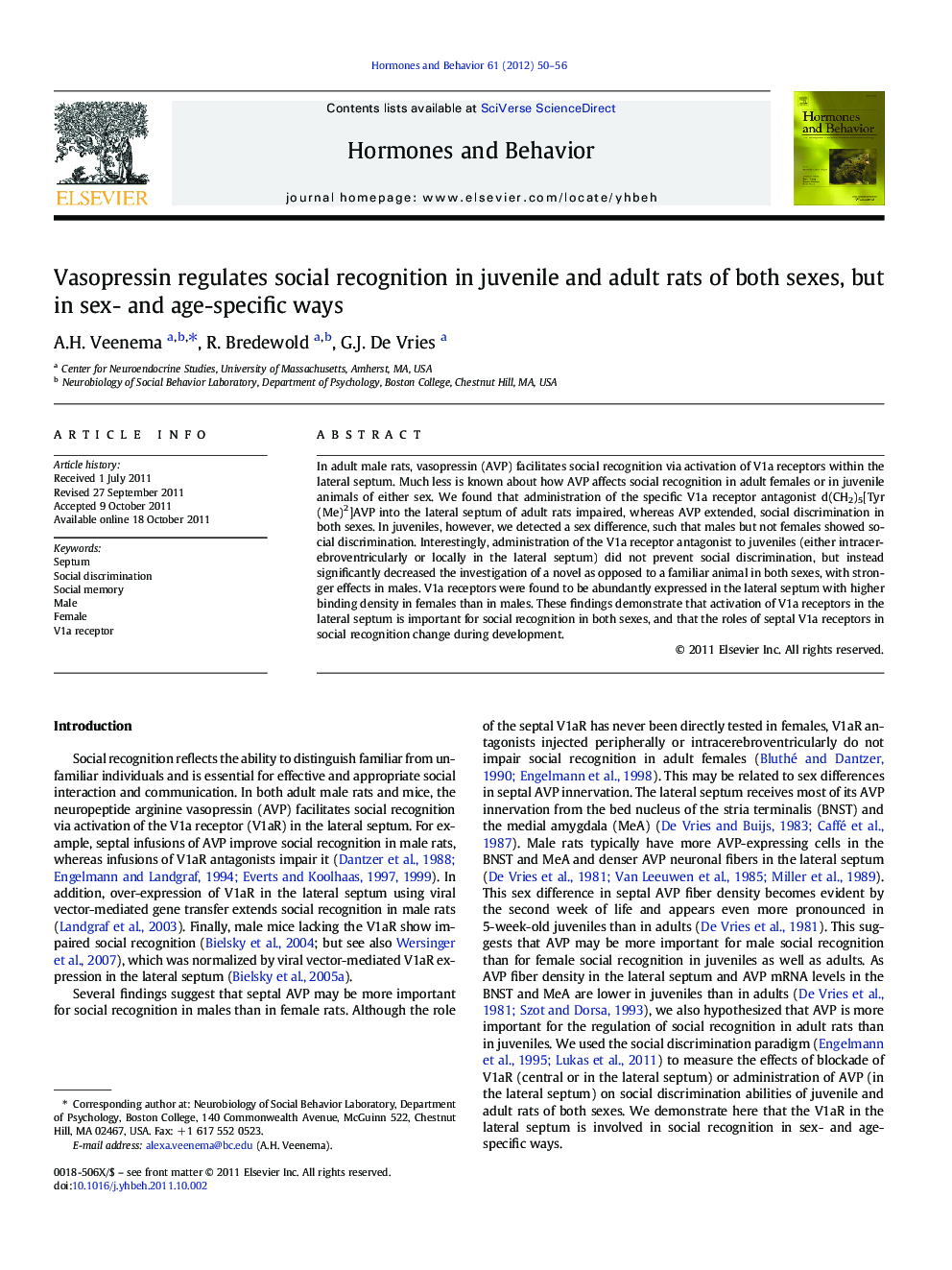| Article ID | Journal | Published Year | Pages | File Type |
|---|---|---|---|---|
| 323157 | Hormones and Behavior | 2012 | 7 Pages |
In adult male rats, vasopressin (AVP) facilitates social recognition via activation of V1a receptors within the lateral septum. Much less is known about how AVP affects social recognition in adult females or in juvenile animals of either sex. We found that administration of the specific V1a receptor antagonist d(CH2)5[Tyr(Me)2]AVP into the lateral septum of adult rats impaired, whereas AVP extended, social discrimination in both sexes. In juveniles, however, we detected a sex difference, such that males but not females showed social discrimination. Interestingly, administration of the V1a receptor antagonist to juveniles (either intracerebroventricularly or locally in the lateral septum) did not prevent social discrimination, but instead significantly decreased the investigation of a novel as opposed to a familiar animal in both sexes, with stronger effects in males. V1a receptors were found to be abundantly expressed in the lateral septum with higher binding density in females than in males. These findings demonstrate that activation of V1a receptors in the lateral septum is important for social recognition in both sexes, and that the roles of septal V1a receptors in social recognition change during development.
► Septal vasopressin V1a receptor blockade impairs social discrimination in adult rats. ► The effect is similar in males and females. ► Septal V1a receptor blockade does not impair social discrimination in juveniles. ► V1a receptor-treated juveniles investigate familiar rats more than novel ones. ► Role of septal V1a receptors in social recognition changes during development.
